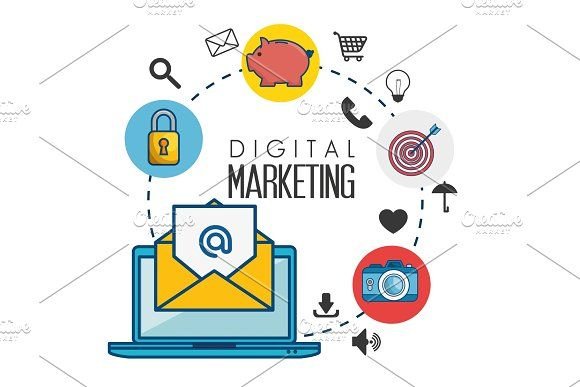Engaging Introductions: Capturing Your Audience’s Interest
In the vast and competitive digital landscape, Search Engine Optimization (SEO) has emerged as a fundamental component for online success. Whether you are a small business owner, a blogger, or a large enterprise, understanding the importance and future scope of SEO can significantly enhance your online presence and drive meaningful traffic to your website. This blog delves into why SEO is crucial and explores the future trends and advancements that will shape the SEO industry.
The Importance of SEO
1. Increased Organic Traffic
SEO is the primary source of website traffic, driving organic visitors through search engines like Google, Bing, and Yahoo. By optimizing your website’s content, structure, and keywords, you can improve your search engine rankings and attract more visitors who are actively searching for the products or services you offer. Organic traffic is highly valuable as it tends to be more targeted and results in higher conversion rates compared to other traffic sources.
2. Cost-Effective Marketing
Unlike paid advertising, which requires continuous investment, SEO provides long-term benefits. Once you achieve high rankings in search engine results, you can maintain a steady flow of organic traffic without the ongoing costs associated with pay-per-click (PPC) campaigns. This makes SEO a cost-effective marketing strategy that delivers sustainable results over time.
3. Enhanced User Experience
A key aspect of SEO is improving the user experience on your website. This includes optimizing page load times, ensuring mobile responsiveness, and creating high-quality, relevant content. Search engines prioritize websites that offer a positive user experience, which not only boosts your rankings but also increases visitor satisfaction and retention.
4. Building Credibility and Trust
Websites that appear on the first page of search engine results are often perceived as more credible and trustworthy by users. By investing in SEO and achieving higher rankings, you can enhance your brand’s credibility and build trust with potential customers. High-quality content, authoritative backlinks, and a strong online presence contribute to your website’s authority and reputation.
5. Local SEO and Increased Foot Traffic
For businesses with a physical presence, local SEO is essential for attracting customers in your area. By optimizing your website for local searches and maintaining accurate listings on platforms like Google My Business, you can drive more foot traffic to your store and increase your visibility in the local market. Local SEO helps you connect with potential customers who are searching for products or services near them.
6. Stay Ahead of the Competition
SEO is a dynamic and ever-evolving field, and staying ahead of the competition requires continuous effort and adaptation. By keeping up with the latest SEO trends and best practices, you can maintain a competitive edge and ensure that your website remains visible and relevant in search engine results. Businesses that neglect SEO risk falling behind and losing valuable traffic to competitors.
The Future Scope of SEO
1. Artificial Intelligence and Machine Learning
Artificial Intelligence (AI) and Machine Learning (ML) are transforming the SEO landscape. Search engines like Google are increasingly using AI to analyze search queries and deliver more relevant results. AI-powered tools can also help businesses optimize their content by identifying patterns, trends, and user behavior. As AI continues to advance, SEO strategies will need to adapt to these changes to remain effective.
2. Voice Search Optimization
Voice search is rapidly gaining popularity with the rise of smart speakers and voice-activated assistants like Amazon Alexa and Google Assistant. This trend is changing the way people search for information online, with more users opting for natural language queries. To stay relevant, businesses must optimize their content for voice search by focusing on conversational keywords and providing concise, direct answers to common questions.
3. Mobile-First Indexing
As mobile internet usage continues to grow, search engines are prioritizing mobile-friendly websites. Google’s mobile-first indexing means that the mobile version of a website is considered the primary version for indexing and ranking purposes. Businesses need to ensure that their websites are responsive, load quickly, and offer a seamless user experience on mobile devices to maintain high search engine rankings.
4. User Experience and Core Web Vitals
User experience is becoming increasingly important for SEO. Google’s Core Web Vitals, which include metrics such as page load time, interactivity, and visual stability, are now key ranking factors. Websites that provide a smooth, fast, and engaging user experience are more likely to rank higher in search results. Businesses must focus on optimizing these metrics to improve their SEO performance.
5. Video Content and Visual Search
Video content is gaining traction as a powerful tool for SEO. Videos are highly engaging and can significantly boost your website’s visibility in search results. Additionally, visual search technologies, which allow users to search using images rather than text, are becoming more prevalent. Optimizing your content for visual search and incorporating video into your SEO strategy can help you reach a broader audience and improve your search rankings.
6. Semantic Search and Contextual Understanding
Search engines are moving towards semantic search, which focuses on understanding the intent and context behind user queries. This means that keyword stuffing and exact match keywords are becoming less important, while context, relevance, and the overall meaning of content are gaining prominence. Businesses should focus on creating high-quality, informative content that addresses users’ needs and provides valuable information.
7. Sustainable SEO Practices
As awareness of environmental issues grows, there is a growing emphasis on sustainable SEO practices. This includes optimizing websites for energy efficiency, reducing carbon footprints, and adopting eco-friendly hosting solutions. Businesses that prioritize sustainability in their SEO strategies can not only improve their search engine rankings but also appeal to environmentally conscious consumers.
Conclusion
SEO is a critical component of digital marketing that offers numerous benefits, from increasing organic traffic to building credibility and trust. As the digital landscape continues to evolve, staying up-to-date with the latest SEO trends and best practices is essential for maintaining a competitive edge. The future of SEO promises exciting developments in AI, voice search, mobile optimization, and more, providing businesses with new opportunities to enhance their online presence and achieve long-term success.
Investing in SEO is not just about improving search engine rankings; it’s about creating a better user experience, building strong relationships with customers, and driving sustainable growth. By embracing the future scope of SEO and adapting to the changing digital landscape, businesses can unlock their full potential and thrive in an increasingly competitive market.
This unique blog provides a comprehensive overview of the importance and future scope of SEO, tailored to help businesses understand and capitalize on the evolving SEO landscape. If you have specific needs or would like to focus on a particular aspect of SEO, feel free to let me know!



